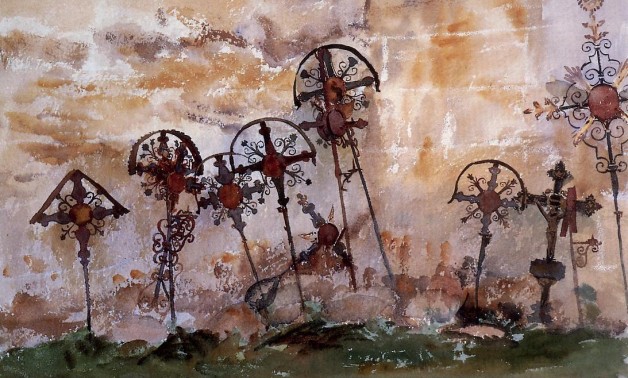My guess is that this morning when you woke up, you probably turned off the alarm and thanked God for the feast of Bl. John Dominic. Wait … you didn’t? You mean, you’ve never even heard of him?
John Dominic met St. Catherine of Siena when he was young, entered the Order of Preachers, and was an integral part of a major reform movement. This reform helped to revitalize the Order after its decimation by the plague and general laxity of observance. Not only was he a major force in the Dominican Order, but he became a cardinal in the Church, and an official legate for the Pope. Most importantly, he worked to resolve the Great Western Schism. He also brought Fra Angelico, the world famous painter, and St. Antoninus, a brilliant theologian and reformer, into the Order.
So if he was such a major player in the world and in the Church, then it seems like we would hear more about him today. On the other hand, I think our collective ignorance of an important figure like Bl. John Dominic is not necessarily a tragedy, but rather is typical to all but a small group of people. We are not remembered for very long after our death. And even for those select few who are remembered, the details that we “know” about their lives are limited.
With the fact of our transience so clearly evident, what then should we make of the common cry these days for being on the right side of history? How can we ensure our historical justification before men and women who have not yet been born and who are likely never to hear our names?
Historical scholarship can be a fickle thing. Winston Churchill was to have said, “History will be kind to me for I intend to write it!” Real events happen in history, but our historical recording of those events can be less than fully accurate. The project of historical research is a human endeavor to reach into the past, and as such, it is subject to the contingencies and finitude that humans must confront. We don’t have access to a great deal of evidence. We can know certain historical truths of black and white, but in between there is often a lot of gray. Persons of the past can get lost in the proverbial historical fog. What’s more, even the very choice of what persons and events to research and write about can signify some sort of bias. The historian must always seek to be objective and impartial, removing himself from any motive of propaganda.
The desire to be on the “right side of history” can presume the myth that history just keeps getting better every day. According to this view, creation is on a constant upward trajectory. The reality has been quite different. A simple survey of the horrors of the 20th century overwhelms the soul. Technological mastery in the hands of adolescent spirits has just allowed greater acts of destruction. This was the greatest age of technological progress and simultaneously the age of the most sinister manifestation of “man’s inhumanity to man.”
Why should we worry what future generations think of us? That seems pretty insecure, to worry about what others who don’t even exist yet think. It seems much better to worry about whether or not we are doing the right thing. That’s not easy in our culture, because there is not widespread agreement on precisely what that right thing is.
Most of us will fade into the past without much comment by future generations. That shouldn’t frighten us; it should motivate us. Doing the right thing for people of faith–acting according to the demands of our human nature and according to the commands of God–should be the primary motivation: not some imagined stamp of approval down the road, but the approval of our loving Maker. For people who don’t believe in God or an afterlife, it is even more critical to do what is right, because it doesn’t seem like being on the right side of history matters much if you’re not going to exist.
Historical hindsight can be 20/20, but too often our rearview mirror gives a picture that is not so clear. Bl. John Dominic knew not to worry about the vicissitudes of human chroniclers, agonizing about his place in the historical annals. Instead, he acted according to his well-formed conscience and the promptings of the Holy Spirit. That is why he is a great saint. He was a world-famous celebrity, now mostly forgotten, except by the One who truly matters.
✠
Image: John Singer Sargeant, Graveyard in the Tyrol







